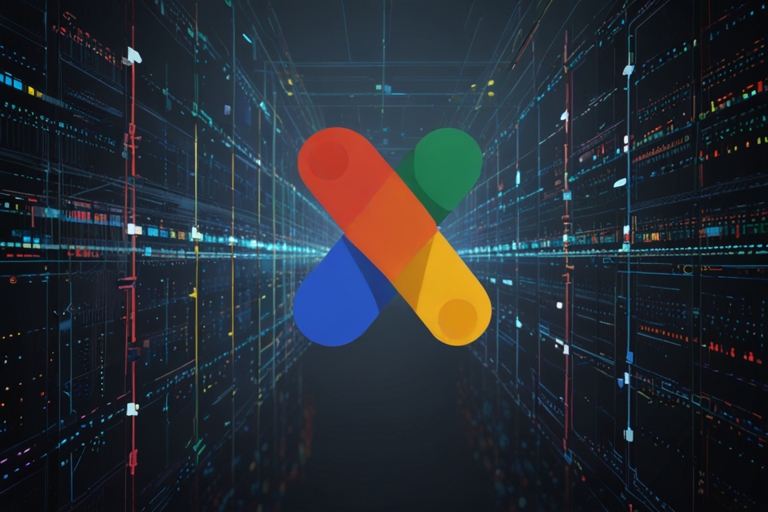
TL;DR
- Google is reportedly planning to end its $200M annual deal with Scale AI.
- Meta’s $14.3B investment for a 49% stake in Scale AI is raising red flags.
- Microsoft and OpenAI are also scaling back work with the company.
- Scale AI insists it remains independent and committed to data security.
- Analysts say Meta’s involvement may create conflict-of-interest risks in AI supply chains.
Google Rethinks Its Relationship With Scale AI
In a major shift, Google is reportedly planning to sever ties with Scale AI — the annotation and model-training startup that has become central to the generative AI boom.
According to Reuters, Google had planned to pay $200 million in 2025 for Scale’s services. However, the tech giant is now exploring competitor relationships and may not renew its contract due to Meta’s growing influence over Scale.
The move follows reports that Meta invested $14.3 billion for a 49% equity stake in Scale AI, raising serious concerns among other AI firms and cloud infrastructure players.
Microsoft and OpenAI Are Also Pulling Back
Google isn’t the only company rethinking Scale AI. Microsoft is also reportedly re-evaluating its engagement, while OpenAI has already scaled back its use of Scale’s services.
OpenAI CFO Sarah Friar said the company would continue to work with Scale as “one of many vendors”, but emphasized a more diversified supplier strategy going forward.
“We are making sure our vendors align with our independence and mission.” – Sarah Friar, CFO, OpenAI
These exits point to growing unease about Scale AI’s neutrality in the highly competitive LLM training market.
Who’s Pulling Away From Scale AI?
| Company | Status of Engagement with Scale AI | Source |
| Plans to end $200M contract | Reuters | |
| Microsoft | Reportedly pulling back | The Information |
| OpenAI | Diversifying vendors, limiting use | Reuters |
What Does Scale AI Actually Do?
Scale AI provides high-quality data labeling, annotation, and model evaluation services. Its clients range from autonomous vehicle companies to government defense contractors.
However, its core customers today are AI companies that rely on accurate, human-labeled training data to build and refine large language models (LLMs).
The company’s strength lies in offering access to specialized annotators who can label complex edge cases, ensuring high-accuracy outputs in NLP, computer vision, and multi-modal AI systems.
Why Meta’s Investment Changed the Game
Reports indicate that Meta acquired a 49% stake in Scale AI, totaling $14.3 billion, and has placed Scale CEO Alexandr Wang in a critical role to lead Meta’s internal superintelligence initiative.
This investment is seen as highly strategic but also highly problematic for competitors.
“If Meta has operational influence or access to vendor pipelines, that’s a red flag for everyone else relying on Scale.” – Anonymous enterprise AI leader, quoted by TechCrunch
For Google, OpenAI, and Microsoft, continuing to rely on a vendor that may share deep technical alignment with a major rival becomes a potential supply chain risk.
Scale Responds: “We Remain Independent”
When reached for comment, a Scale AI spokesperson declined to comment on the Google partnership directly, but said that the company remains fully independent, adding:
“Scale operates with strict data confidentiality standards and continues to serve customers across sectors with no bias.” – Spokesperson, Scale AI
The company insists that no client data is shared across accounts and that Meta has no special access to its broader infrastructure.
Legal and Industry Implications
The breakup of these relationships may have ripple effects:
- Contract renegotiations across the AI vendor ecosystem
- Scrutiny from regulators concerned with data monopolies and concentration of power
- Pressure on startups like Scale to disclose more about their ownership and governance structures
Analysts expect that the episode could accelerate the creation of multi-vendor AI pipelines, pushing companies to de-risk AI development across diverse infrastructure.
The Bigger Picture: AI Vendor Neutrality is Now Strategic
In the early days of AI development, companies focused on accuracy, cost, and speed of data labeling. But as LLMs become more competitive and lucrative, vendor neutrality and trust are taking center stage.
“No AI company wants their competitor’s fingerprints on their training data.” – Senior LLM researcher, via The Verge
Going forward, expect more firms to build internal labeling teams, expand open-source annotation tools, or partner with vendors outside Big Tech’s sphere of influence.
Conclusion: Scale AI’s Future May Depend on Transparency
Scale AI, once a rising star in the infrastructure layer of generative AI, is now facing a credibility test. As long as Meta holds significant ownership and leadership stakes, clients may feel pressure to exit, diversify, or demand clearer boundaries.
Unless the company can demonstrate airtight data segregation, its role as a neutral backbone for the AI ecosystem may be short-lived.





